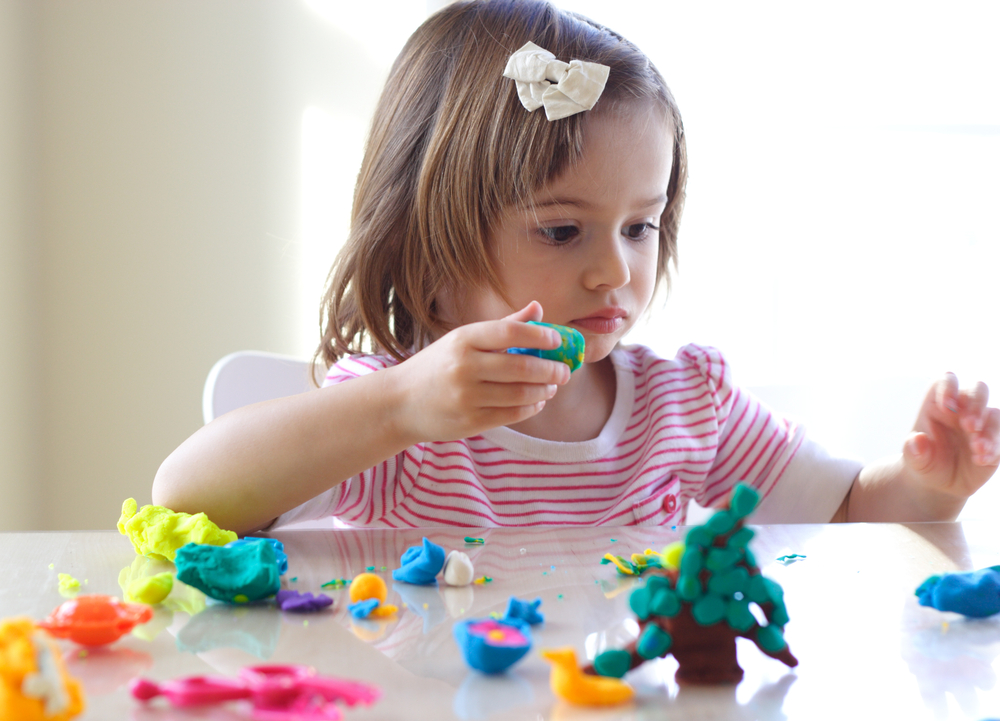Want creative, curious, healthier children? Let them play
Published on Tuesday, 23 October 2018
Last updated on Monday, 03 February 2020

Early childhood educators have great understanding of the importance of play for young children and appreciate that play based learning builds the foundation for early skills in literacy, STEM, communication and more.
A new report from the American Academy of Paediatrics (AAP), The Power of Play, offers evidence to support the power of play and says: "the importance of playful learning for children cannot be overemphasized."
According to the AAP clinical report, which was released at the end of August, children's play is brain building, a central part of healthy child development, a key to executive function skills, and a buffer against the negative impacts of stress. Furthermore, play helps children build relationships and bonds with educators, parents and other children.
Dr Michael Yogman, lead author of the AAP report says they are recommending doctors write a prescription for play, because it is so important.
"Play is fundamentally important for developing a suite of 21st century skills, including social, emotional, language and cognitive skills, all needed by the next generation in an economically competitive world that requires collaboration and innovation.
The benefits of play cannot really be overstated in terms of mitigating stress, improving academic skills and helping to build the safe, stable and nurturing relationships that buffer against toxic stress and build social-emotional resilience."
Research has provided numerous examples of the importance of play for healthy child development:
- In a study, 3- to 4-year-old children, anxious about entering preschool, were twice as relieved of their stress when allowed to play with teachers or peers for 15 minutes, compared to peers who listened to a teacher reading a story.
- Research also found that preschool children with disruptive behaviours were less stressed and less disruptive when the teacher played with them regularly one-to-one over the course of a year, compared with peers who had routine interactions.
However, the authors of the report claim that children's playtime in America has been threatened by societal changes.
- From 1981 to 1997, children's playtime decreased by 25 per cent, and 30 per cent of kindergarten children no longer have recess, which has been replaced by academic lessons, according to research published in Advances in Life Course Research.
- A national survey of 8,950 preschool children and parents found that only 51 per cent of children went outside to walk or play once a day with a parent.
- Surveys have found as many as 94 per cent of parents have safety concerns about outdoor play.
- Despite research that links television watching with a sedentary lifestyle and greater risks of obesity, the typical preschooler watches 4.5 hours of television per day, according to media research.
Report co-author Dr Jeffrey Hutchinson said television, video games, smartphone and tablet apps are increasingly distracting children from play.
"It's concerning when immersion in electronic media takes away time for real play, either outdoors or indoors.
Although active engagement with age-appropriate media can be beneficial for older children, especially if supported by co-watching or co-play with peers or parents, real time social interactions and play are superior to digital media for learning," he said.
The AAP says that early learning is encouraged by facilitating a child's natural urge to play and offers educators these tips:
- Play starts early and continues through a child's development. Educators should observe and respond to the nonverbal behaviour of infants during their first few months of life.
- Advocate for and protect unstructured play and playful learning in preschools and schools because of its numerous benefits.
- Focus on playful rather than didactic learning by letting children take the lead and follow their own curiosity.
- Promote and encourage physical activity for children every day.
Related Articles

Why risky play is important for young children
Providing safe opportunities for risky play in early childhood settings.

Sensory play in child care
Sensory play might involve making mud pies and smelling the daisies, but there's more to this immersive activity than meets the eye.
